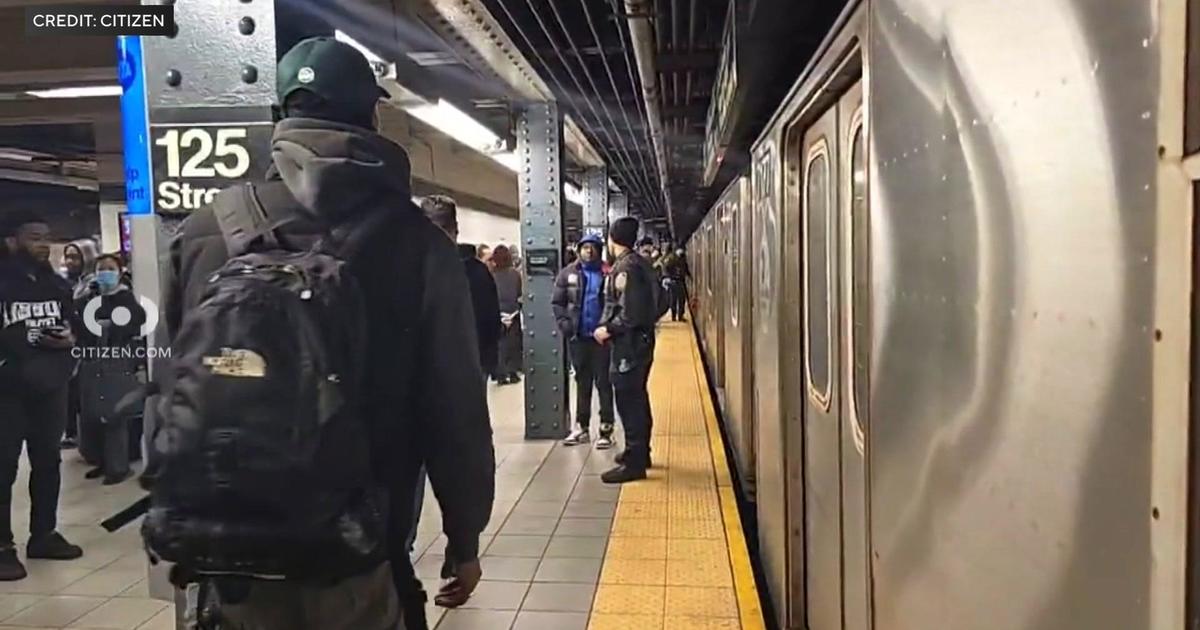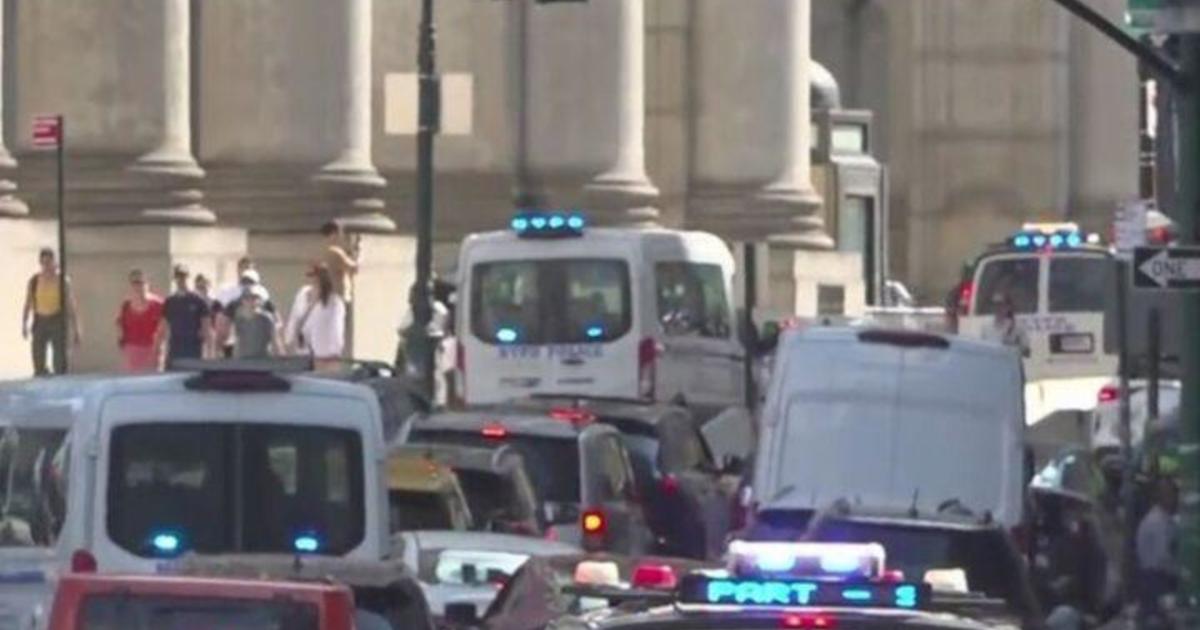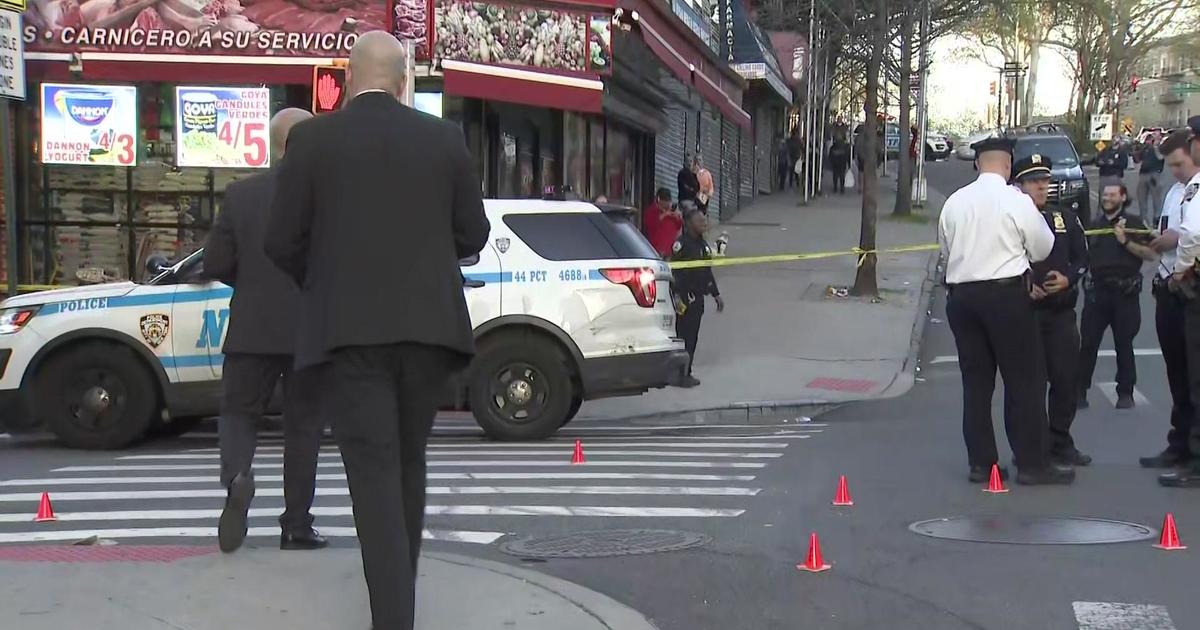Gitmo Detainee Acquitted Of All But 1 Charge In NY
NEW YORK (AP / WCBS 880) -- The first Guantanamo detainee to face a civilian trial has been acquitted in New York City of all but one charge accusing him of a deadly 1998 plot to bomb two U.S. embassies in Africa.
Podcast
WCBS 880's Irene Cornell reports
A Manhattan jury found Ahmed Ghailani guilty on Wednesday of conspiracy to destroy U.S. property in al-Qaida attacks on two U.S. embassies in Africa in 1998. But it acquitted him on more than 280 other counts, including one murder count for each of the 224 people killed in the bombings.
"This verdict is an affirmation that this nation's jury system is the greatest ever devised,'' Ghailani lawyer Peter Quijano said following the verdict.
The defense had portrayed the first Guantanamo detainee to face a civilian trial as a clueless errand boy, exploited by senior al-Qaida operatives and framed by evidence from contaminated crime scenes.
Prosecutors, who branded Ghailani a cold-blooded terrorist, emphasized that the conviction on a lone count still means he will get a stiff prison term at sentencing on Jan. 25.
"He will face, and we will seek, the maximum sentence of life without parole,'' U.S. Attorney Preet Bharara said in a statement.
The trial had been viewed as a measure of how President Barack Obama administration's aim of putting other terror detainees - including Mohammed and four other terrorism suspects held at Guantanamo Bay, Cuba - on trial on U.S. soil rather than using military tribunals would fair.
Civil rights advocates said the results were positive.
"The jury heard the evidence and delivered a verdict that - unlike military commissions trials - we can trust,'' said Hina Shamsi, director of the American Civil Liberties Union's National Security Project. "We should be proud of a system that isn't set up to simply rubber stamp the government's case no matter how little reliable evidence there may be.''
Human Rights First's Daphne Eviatar, who has been in the courtroom monitoring the case, questioned "why the government has not tried all terror suspects in federal court and when will the government announce additional prosecutions.''
U.S. Rep. Pete Hoekstra, the top Republican on the House Intelligence Committee, said Wednesday's verdict confirms that the Obama administration's decision to try Gitmo detainees in civilian courts "was a mistake and will not work.''
"This case was supposed to be the easy one, and the Obama administration failed - the Gitmo cases from here-on-out will only get more difficult,'' Hoekstra, of Michigan, said in a statement.
U.S. Rep. Peter King, a Republican who's the ranking minority leader of the Homeland Security Committee, called the verdict "a miscarriage of justice'' and a "wake-up call'' for the White House.
"This tragic verdict demonstrates the absolute insanity of the Obama Administration decision to try al-Qaida terrorists in civilian courts,'' he said.
Ghailani's prosecution demonstrated some of the constitutional challenges the government would face if that happens. On the eve of his trial last month, the judge barred the government from calling a key witness because the witness had been identified while Ghailani was being held at a secret CIA prison where harsh interrogation techniques were used.
"To the extent that some people might attribute this result to the inability to bring that witness, point the finger at those responsible - those who engage in torture, and thereby delegitimize evidence,'' said defense attorney Joshua Dratel.
Dratel represented one of four other men charged in the same attacks in Tanzania and Kenya. All were convicted in the same courthouse a decade ago and sentenced to life terms.
Prosecutors had alleged Ghailani helped an al-Qaida cell buy a truck and components for explosives used in a suicide bombing in his native Tanzania on Aug. 7, 1998. The attack in Dar es Salaam and a nearly simultaneous bombing in Nairobi, Kenya, killed 12 Americans.
The day before the bombings, Ghailani boarded a one-way flight to Pakistan under an alias, prosecutors said. While on the run, authorities say he spent time in Afghanistan as a cook and bodyguard for Osama bin Laden and later as a document forger for al-Qaida - allegations that were not part of the case.
He was captured in 2004 in Pakistan and was held by the CIA at a secret overseas camp. In 2006, he was transferred to Guantanamo and held until the decision last year to bring him to New York.
Despite losing its key witness, the government was given broad latitude to reference al-Qaida and bin Laden.
The jury heard a former al-Qaida member who has cooperated with the government describe how bin Laden took the group in a more radical direction with a 1998 fatwa, or religious edict, against Americans.
Bin Laden accused the United States of killing innocent women and children in the Middle East and decided "we should do the same,'' L'Houssaine Kherchtou said on the witness stand.
A prosecutor read aloud the fatwa, which called on Muslims to rise up and "kill the Americans and plunder their money wherever and whenever they can find it.''
Other witnesses described how Ghailani bought gas tanks used in the truck bomb with cash supplied by the terror group, how the FBI found a blasting cap stashed in his room at a cell hideout and how he lied to family members about his escape, telling them he was going to Yemen to start a new life.
The defense never contested that Ghailani knew some of the plotters. But it claimed he was in the dark about their sinister intentions.
"Call him a fall guy. Call him a pawn,'' Quijano said in his closing argument. "But don't call him guilty.''
The mixed verdict recalled the result of the first trial by a U.S. military court at Guantanamo Bay Naval Base in Cuba in 2008. There, Salim Hamdan, a former driver for bin Laden, was convicted of aiding terrorism, which carried a potential life sentence, but was exonerated on two charges of conspiracy.
In the first war-crimes trial since the aftermath of World War II, Hamdan was sentenced to 5 years in prison and was later returned to Yemen to complete his sentence.
(Copyright 2010 by The Associated Press. All Rights Reserved.)



